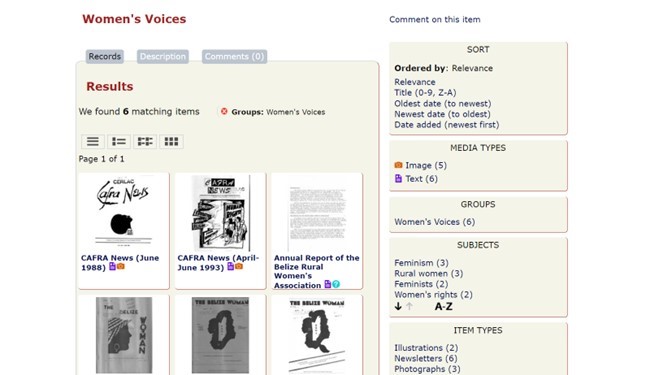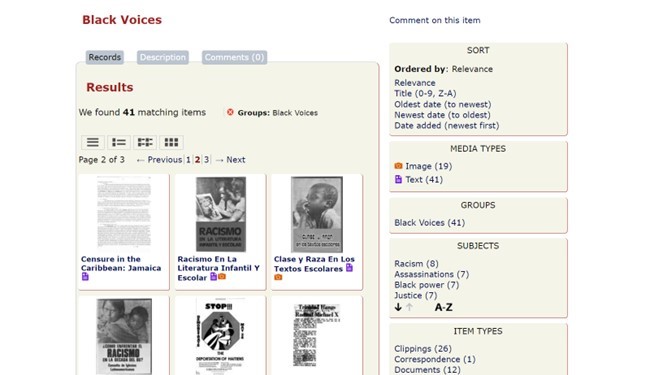A sample of documents that represent “Black and Women’s Voices” is now available in digitized format from the Resource Centre collections of York’s Centre for Research on Latin America and the Caribbean (CERLAC).
A sampling of “Indigenous Voices” will follow soon (https://vitacollections.ca/cerlacresourcecentre/search). The digitized materials form part of an equity, diversity, and inclusion (EDI) project supported by the Office of the President, and they come from very large and unique collections of original historical documents on these and other topics.
Founded in 1978, CERLAC and its Resource Center (currently located on the sixth floor of the Kaneff Tower) were inspired by the exiled students and scholars who arrived in Canada from the military dictatorships of the time in Latin America. It incorporates the library of the Latin American Working Group (LAWG) that functioned as an independent civic organization that engaged in research, publication, and activism from the mid-1960s to the mid-1990s.

The digitized “Black Voices” items reflect the persistence of racism in well-known events in Caribbean history, such as the banning of Black Power literature in Jamaica in 1968, the triumph of the New Jewel Movement in Grenada in 1979, the assassination of the Marxist historian Walter Rodney in Guyana in 1980, and the Haitian refugee exodus of 1980-81. Collectively, the documents presented at the digital site are relevant to scholars from a broad range of disciplines.
The “Women’s Voices” (for the most part in Spanish) come from the first feminist organizations that were founded in Latin America and the Caribbean in the 1980s and 1990s. The materials are historic although many of the organizations that were established during those decades continue to function today. The “Women’s Voices” also deal with issues of anti-Black and anti-Indigenous racism and directly address diverse and controversial topics such as abortion rights, domestic violence, and homosexuality, to name a few.
The digitized material is presented to provide a sample of the documents available in the CERLAC Resource Center that are not restricted by copyright laws. Specific articles are extracted from longer publications. This includes, for example, excerpts regarding “Black Voices” from issues of the Caribbean Monthly Bulletin and Caribbean Contact, and publications of the Latin American Evangelical Commission for Christian Education (CELADEC) (in Spanish).
Similarly, in the case of women’s organizations, short articles and other documents are extracted from longer publications of, for example, the newsletters of the Movimiento Manuela Ramos (Peru), the Fundación Puntos de Encuentro (Nicaragua), and the Belize Rural Women’s Association. Quite a few of the women’s organizations have digitized recent parts of their collections and now publish newsletters online. Unfortunately, however, Puntos de Encuentro is no longer available electronically since the government of Nicaragua closed the organization, denying it legal status.

In other cases, only the cover pages and tables of contents of a publication have been digitized since the complete text of a study or all the issues of a newsletter or journal are available online or are protected by copyright. This is the case, for instance, for articles about the Rastafarian community of Kingston, Jamaica, published in the flagship journal of Caribbean culture at the University of the West Indies, Caribbean Quarterly. It is also the case of the status of women reports of the Latin American Faculty of Social Sciences (FLACSO), published in the early 2000s and of the journals of the Caribbean Association for Feminist Research and Action (CAFRA).
The digitization was completed by York graduate students Alexander Cramer and Sebastián Oreamuno in the Department of History and Department of Dance respectively. Professor Emeritus Liisa L. North in the Department of Politics, provided supervision.
To learn more, visit https://www.yorku.ca/cerlac/cerlac-digitize-resources/.


